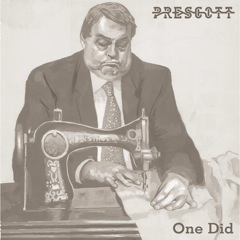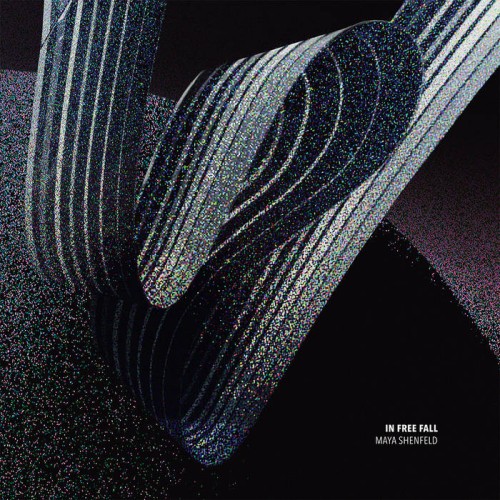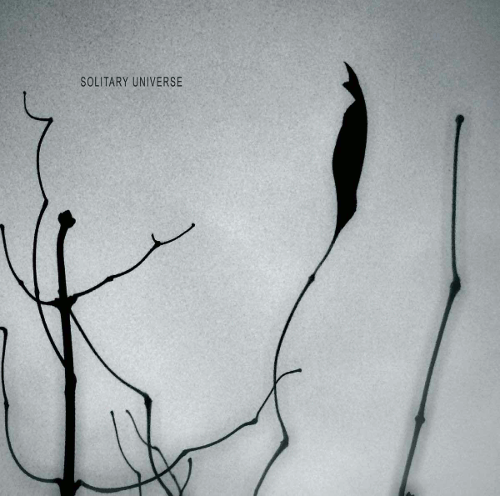Tarentel – Mort Aux Vaches
Label: Staalplaat Format: CD
This is a ‘live’ recording of a U.S. guitar based outfit and consists of four fairly long workouts. “Adonai” covers some of the territory of Fripp and Eno and is a somewhat somnolent affair with rippling guitars creating a lazy ambience. “Steede Bonnet” has the kick of drums mingling with the still quite restrained guitar which, at times, sounds like it could have been used in a Spaghetti Western. Lots of twang and reverb. The music drifts along without too many waves though it alters direction a bit as they make use of processed voices, shredded and indistinct, along with dark electronic drones and hums. The CD has no liner notes so I’ve no idea what other instruments are at work here. The sleeve is, in fact, a limited edition plastic design which is short on information generally.
On the third track, “When No One’s Listening” the guitar whines over a repeated bass figure to create a further drifting ambience before the drums step in to raise the music a gear. It has a ponderous quality without being dull and relies on the creation of a rather low-key series of moods for its effect. The final track again refers to Fripp/Eno territory as well as some slowly unfolding Floyd-ish passages. Come to think of it, parts of other tracks have an echo of Gilmour and co. I’ve just realised ! There are two other Tarantel CDs out already which cite influences from Slint, Radiohead and Arvo Pärt among others, so I’d be curious to hear their studio material to see how far these have absorbed.
-Paul Donnelly-
Teeth Of The Hydra – Greenland
Label: Tee Pee Format: CD,LP
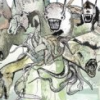 Let’s face it, Vikings were pretty cool. I mean, we all know how cool pirates were. And we all know how cool barbarians were. And Vikings were like pirate barbarians, in a way. Or barbarian pirates. Or something. So they were pretty damn cool, really. And metal seems to agree. METAL AGREES WITH ME. FEAR ME FOR I ROCK REALLY FUCKING AWESOMELY. (Ahem. Ed.) Combining the genre’s long-standing love affair with all things Norse and the current movement for 70s-style riffing and experimentation filtered through some sort of post-black metal FILTER OF DOOM, as exemplified by Mastodon, Ohio’s Teeth Of The Hydra drive a big fuck-off longship through the American mid-West, sacred blades aloft and axes ready to drink the blood of the fallen and all that malarkey.
Let’s face it, Vikings were pretty cool. I mean, we all know how cool pirates were. And we all know how cool barbarians were. And Vikings were like pirate barbarians, in a way. Or barbarian pirates. Or something. So they were pretty damn cool, really. And metal seems to agree. METAL AGREES WITH ME. FEAR ME FOR I ROCK REALLY FUCKING AWESOMELY. (Ahem. Ed.) Combining the genre’s long-standing love affair with all things Norse and the current movement for 70s-style riffing and experimentation filtered through some sort of post-black metal FILTER OF DOOM, as exemplified by Mastodon, Ohio’s Teeth Of The Hydra drive a big fuck-off longship through the American mid-West, sacred blades aloft and axes ready to drink the blood of the fallen and all that malarkey.
And they sound BIG. I have no idea what these guys look like, but I hope they have beards and big muscles, or it’ll spoil it a bit. But they certainly sound big. Opener “Sawing Through The Ice” is the sort of thing you’d want to listen to if you were, in fact, sawing through some ice. Like the Blind Chainsaw Fisherman from Bad Wisdom. Only possibly more Metal. To be honest, the thing this reminds me of the most is the Rollins Band at their most Sabbath-obsessed: the album’s centrepiece, the ten-minute “The Garden Of Rotten Teeth”, which tells the Kafka-esque story of some dude who’s arrested for crimes unknown and driven to Siberia, where radiation makes his teeth fall out, is all repeated Iommi-style riffs, with a vocal sounding like one of Henry Rollins‘ more epic moments.
But it’s not all Sabbath and shouting. Well, most of it is. “Voices Over Conus” has brief snatches of acoustic guitar, which are promptly CRUSHED LIKE WORMS by drum-rolls that wouldn’t sound out of place on a Mastodon album, and some good old-fashioned riffing, the kind that a few years ago would have been dismissed by “rock” fans as “too Metal” (yeah, figure that one out) but have now thankfully emerged from their misplaced sense of shame. But yeah. Think 70s Stoner Rock played by a 90s outfit who’ve somehow travelled forward in time and listened to the convergence of Black Metal and post-Tool Prog Metal, and you won’t be far off. But it’ll be an epic voyage nonetheless.
-DEUTERONEMU 90210, SLAYER OF MEN-
Tekonivel – Gulab Jamoon
Label: Tension Format: 12″
Who better than to make minimal Techno than Pan(a)Sonic‘s very own Mika Vainio? Where his usual outfit make great music from a restricted palette of oscillators only (well, almost), in Teoknivel garb Vainio gets to add in high hats, synth washes and all manner of the usual instruments of Techno. “Disko Pepe” still throbs with that Pan Sonic pulse, but the added elements make for a different sound; smoother in some ways and perhaps less open to interpretation due to the more obvious nature of the sound sourses.
“Sinkki” is even more familiar at first, with that wonderful banging oscillator sound to propel the beat, but the glooping sounds he interweaves make it something of an altogether more groovy experience. The title track takes some beating for the Techno variation on the warmly wobbling sound which has made Vainio’s name, and “Termiiti” does even more with the sub-bass, letting it bleed and taking the distortion itself as a counterpointed rhythm with all the fun that engenders. By rights, this EP should be thundering out from decks at parties and raves everywhere (as, of course, should Pan Sonic vinyl of all descriptions), taking any available walls with it, along with the speaker cones.
-Freq1C-
Teleseen – War
Label: Percepts Format: CD
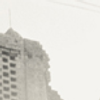 Fizzing with digital dub, much in the way that Pole‘s bass-heavy electronica does, War offers a head-stepping, foot-nodding series of skanking instrumentals, slipping from trebly overtones to low end shuffles with an ear for the groove. Smoke almost seems to curl out from the speakers at the mellowest points; but there are uptempo moments of beat excitement too, as the mood shifts gear in the spikier throes of floor-friendliness and a hint or two of murky drum’n’bass.
Fizzing with digital dub, much in the way that Pole‘s bass-heavy electronica does, War offers a head-stepping, foot-nodding series of skanking instrumentals, slipping from trebly overtones to low end shuffles with an ear for the groove. Smoke almost seems to curl out from the speakers at the mellowest points; but there are uptempo moments of beat excitement too, as the mood shifts gear in the spikier throes of floor-friendliness and a hint or two of murky drum’n’bass.
Keeping the dubs moving is accomplished well, and Teleseen (AKA Gabriel Cyr of Brooklyn) perches neatly on the cusp of digital and analogue, striking an effective balance for the most part. While the core sounds often have a clean, sequenced flavour, the flickering crackles and sparsely layered washes of echo and reverb blend in more organic textures to offset the crispness of the deftly intricate programming, slides of sub-bass heaving in an undertow which helps to have a capable sound sytem – or even better a generous PA – to fully appreciate.
There’s plenty of diversity within the narrow framework of low end resonance, as microdubs, minimelodies and environmental samples stack up and ripple around exploratory percussion manouevres. As the album progresses, the ideas flow with greater confidence and depth of focus, with long pulsating waves packed full of engrossing twists and a hefty dose of minimal techno. Whether evoking a stoned contemplation or a harsher set of urban vibrations, War develops into a worthy slice of contemporary dubplate weightiness.
-Linus Tossio-
10 Ft. Ganja Plant – Hillside Airstrip
Label: ROIR Format: CD
 Alternate identity for members of John Brown’s Body and Tribulation, this CD from upstate New Yorkers 10 Ft. Ganja Plant does the whole Seventies Reggae stchick to good effect, making for a very Rootsy album with a few Dub inflections thrown into the mix as is both customary and welcome. Of particular note is the cover, a kind of Fab. Furry Freek Bros. meets Ariwa-style cartoon depiction of the latest consignment of the herb distracting the band from their practice.
Alternate identity for members of John Brown’s Body and Tribulation, this CD from upstate New Yorkers 10 Ft. Ganja Plant does the whole Seventies Reggae stchick to good effect, making for a very Rootsy album with a few Dub inflections thrown into the mix as is both customary and welcome. Of particular note is the cover, a kind of Fab. Furry Freek Bros. meets Ariwa-style cartoon depiction of the latest consignment of the herb distracting the band from their practice.
The opener “Long Time Ago” shows the expected, even obligatory, respect for Bob Marley in construction, harmonies and general vibe of positive conscious lyrics working over a skanking groove. In this area 10 Ft Ganja plant occupy similar territory to festival favourites The Rhythm-ites (and to a lesser extent Dry & Heavy), making the continuity of Jah-praising and drum and bass pressure through three decades work in entirely agreeable ways. This song is certainly an instant grabber of attention, and it’s a bit of a shame to report that the same level of effectiveness isn’t maintained throughout.
Not that Hillside Airstrip becomes in any way tedious or unpleasant to listen to. Far from it, but it’s not until the low-level buzzing of light aircraft infects the title track, and “New Day’s” instrumental and echoed vocal completes the set, that a deeper sense of Dubbed-up light-headedness and the key ingredient of stoned imagination the group’s title would indicate emerges. Overall, the general mood is of upright, solid Reggae in varied styles, with “Born Free” occupying another particularly smooth example of life-affirming Rasta harmonies and sentiments that on the whole are pretty hard to disagree with. Soulful is the word, and this 10 Ft. Ganja Plant do to the nth degree.
-Linus Tossio-
Tenhornedbeast/Marzuraan – Tenhornedbeast/Marzuraan
Label: Aurora Borealis Format: CD
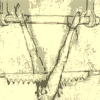 Divided between two lengthy tracks, one per artist, the disc is packed up in a neat die-cut sleeve which when unfolded reveals a woodcut of a mediaeval unfortunate being sawed in half at the crotch (it is a split CD, after all), an image which sets the scene for a solid forty minutes plus of descendant drone and mire-surfing rumble. Tenhornedbeast is the solo project of Christopher Walton of Endvra, and the fed-back noise sculpture he builds on treated and heavily-effected guitar rises at a glacial pace from a swelling sound of something akin to close-mic’ed electric bergs forming in the icebox; or perhaps, given the title of the track is “The Law of the Needle”, more like the noise of a brain dissolving softly in an opiated haze.
Divided between two lengthy tracks, one per artist, the disc is packed up in a neat die-cut sleeve which when unfolded reveals a woodcut of a mediaeval unfortunate being sawed in half at the crotch (it is a split CD, after all), an image which sets the scene for a solid forty minutes plus of descendant drone and mire-surfing rumble. Tenhornedbeast is the solo project of Christopher Walton of Endvra, and the fed-back noise sculpture he builds on treated and heavily-effected guitar rises at a glacial pace from a swelling sound of something akin to close-mic’ed electric bergs forming in the icebox; or perhaps, given the title of the track is “The Law of the Needle”, more like the noise of a brain dissolving softly in an opiated haze.
Marzuraan have been taking a few hints from the work of Justin Broadrick, most probably from his work as Jesu, and their contribution “Into Countless Battles” buzzes and thrums with low-temparature fuzz and ponderous percussion. The mordant vocals lumber on in self-reflective introspection, and overall the effect is like being pulled into the mind of a depressive with a thousand yard stare, chugging away on a long lost journey into the dim twilight.
-Richard Fontenoy-
Tennis – Duck Shelf/Interview
Label: Expanding Format: 7″
Pressed up on nicely weighty green vinyl, this limited edition from Tennis complements their BiP-Hop album Europe On Horseback quite neatly. “Duck” slithers a deep pulsing rhythm from the haze of echo and computer-generated reverberation, swizzling samples into the clicking dubspace with aplomb. “Interview”, despite conjuring images of Baktabak picture discs of the duo of Douglas Benford and Ben “Benge” Edwards being grilled earnestly about their methodology, is in fact purely instrumental. Well, pure isn’t really the word, as the duo shuffle relaxed vocal fragments (of what turns out to be sampled from an interview about their music) as instruments around a chunkily stepping post-Dub loop which wavers off into the land where bleeps don’t do it standing in an orderly queue.
-Freq1C-
Tennis – Europe On Horseback
Label: Bip Hop Format: CD
 Tennis is part of an ongoing London-based collaboration between Benge (a.k.a. Ben Edwards) and SI-{CUT}.DB (a.k.a. Douglas Benford). Imagine Pan Sonic or some of Richie Hawtin‘s recent minimalist numbers with a bit more spike and a tad more Electro clutter. Their influences are dub and Germanic and the sound isn’t quite so sparse and singularly oscillator generated. Acoustic and digital sounds combine together to form nicely disfunctional rhythms, counter-rhythms and textures.
Tennis is part of an ongoing London-based collaboration between Benge (a.k.a. Ben Edwards) and SI-{CUT}.DB (a.k.a. Douglas Benford). Imagine Pan Sonic or some of Richie Hawtin‘s recent minimalist numbers with a bit more spike and a tad more Electro clutter. Their influences are dub and Germanic and the sound isn’t quite so sparse and singularly oscillator generated. Acoustic and digital sounds combine together to form nicely disfunctional rhythms, counter-rhythms and textures.
This is the duo’s second album, and BiP-HOp‘s first full length release. Tennis seem to be on the move, and look like they have been since the mid Nineties – with a collective discography as long as yr arm on as many labels. Douglas is one of the forces behind Sprawl label/club that has a monthly spot at The Global Caf�in Soho – a fine place to pickle your liver with absinthe. Also on the current agenda are dates in London and Europe, as well as the entirely appropriate possibility of tracks appearing on Pole‘s ~Scape label.
An album of glitter for all occasions, Europe On Horseback is yet another reason to keep an eye out for the sound assemblers of Tennis in their various guises.
-a.p-
Tennis – Furlines
Label: BiP-HOp Format: 2CD
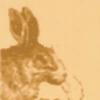 Pursuing their quest for the ultimate in soothingly textural electronic Dub abstraction yet further, Douglas Benford and Ben Edwards bring forth eight small mammal-themed tracks on Furlines. As a bonus to celbrate BiP-HOp‘s 20th release in two years, a second CD of remixes of material from the Tennis album Europe On Horseback makes up the package to a double-disc set.
Pursuing their quest for the ultimate in soothingly textural electronic Dub abstraction yet further, Douglas Benford and Ben Edwards bring forth eight small mammal-themed tracks on Furlines. As a bonus to celbrate BiP-HOp‘s 20th release in two years, a second CD of remixes of material from the Tennis album Europe On Horseback makes up the package to a double-disc set.
There is a rustling country air to the album, with the skittering cheeps of rodents and other little furry woodland creatures permeating atmospheric traipses into the trees. There is an opportunity for a bad pun to which doesn’t go unmissed in the form of “Bad Hare Day” with its loping back legs leaving deep and crisp indentations in the half-glimpsed rhythms of digital snuffles and Dubwise shivers. The mood is pastoral, serene, ambient is the sense of suggesting a sense of rural place in an entirely electronic fashion. Assured and indubitably pleasant to the last crackling twich of its bright button nose, Furlines soothes and warms in equal measure; but as the urgent scurrying patter of sharp claws of “Badger Tracks” demonstrates, never to be dismissed as soft or toothless.
The second disc, The “Horseback” Mixes, opens with a glittery “Self-seal Mishap” deconstruction by Taylor Dupree as the “12000m Above Halifax” mix, flickering and slow-burning in a languid flow of delay effects and melodic hints at stepping motion. Cray reconfigures the same source into “Hard Drive Mishap56”, employing a gurgling virtual frog chorus as clean-up crew to munch their way through the crepitating aftermath of the creaking rewound accident, while Tim Hecker puffs gentle echo chamber breezes into a gathering rumbling storm for his “Undertaker” mix. The “No More Self Harm” mix by Bovine Life‘s Chris Dooks is altogether spookier, with cut-up fragments of a child’s little voice accompanying both male and female supernatural choirs from the aether in counterpoint to a hissing undertow flecked with watery mechanical trickles.
Similar diverse interpretations of “Contube Anatomy” come from ElectroniCat, who blips and chugs into an urgently groovy 4/4 buzz with both knobs and bells on; from CK Dexter Haven as a series of radio interference patterns pushed through a whining digital blender stuttering under the strain; and Pimmon‘s “[J-jay Jeans Mix]” in extreme close-up dissection mode, splayed out and expanded to fully discern the traces of its anatomy. “Civic Halo” becomes a suitably enveloping if distracted melange of bass and click, steamed hiss and bleep in the “Slow Motion Halo” version from Warmdesk while Iris Garrelfs, AKA BitTonic, turns the same into a crow-infested clash of pitched-down hesitating Dub and glitch at a few Industrial removes for her “Permafrost” mix.
Elsewhere, Mikael Stav�trand turns “Loose Knit Pierrot” up quite a few Housier notches, sparking the deracinated samples into an uptempo fusion of pulsing bass and glistening faux-piano stabs, the whole still sprinkled with enough twinkly detritus to keep the thematic digital grime from quite disappearing down the disco for a syncopated night of arm-waving fun. The Jerker does something appropriate to their name to “Port Helix”, throttling down and twisting up matters until the ears pop under the stress of a well-wrung out procession into splattercore digital grimacing, with no rhythm left unsprung or peak level exceeded and hardly an opportunity for timestretching into oblivion avoided.
All these and a typically mellow swirl of FM synthesis and busy glitchadelic sample-layering from Scanner‘s “Dvojit�Chyba” take on “Weakness Together”, the low-end wall-shaking and dripping of “Viral Spectra” from Kim Cascone or Frank Bretschneider‘s short-form turning of the same basic “Safelle” track to harsher Digi-dub funk directions complete what is above all a well-rounded set of remixes.
-Richard Fontenoy-
Terre Thaemlitz and Jane Dowe – Institutuional Collaborative
Label: Mille Plateaux Format: CD
Accompanied by a somewhat over-theorized (if interesting) essay on its origins, structure and production, the Institutional Collaborative project sets out to reclaim Ambient music from the mire of New Age wallpaper while also attempting to blur further the distinction between digital and analogue processes. Jane Dowe and Terre Thaemlitz, their roles as academics and journalistic theoreticians reflected in their chosen project title, have assembled, processed and edited their source material purely via email and DAT/CD, never meeting in person. For all the earnest examination of their own role on the production of the audio data on the CD, the (entirely valid) questioning of the socio-economic forces which affected its composition and even structure, what emerges from the resulting combination of sampled and glitched-up sound is an ever-changing landscape of half-recognizable fragments, tones and digital residue.
Obvious similarities to fellow Mille Plateaux deconstrucionists Oval‘s assault on the underlying ones and zeros of the compact disc make for both a reference point and point of departure; where Oval obscure and deface their sources into complete abstraction, Dowe and Thiemlitz are keen to foreground theirs on occasion, grounding the audio in a social context as part of the experimental process. Each track is stripped of apparently meaningful title, instead imparting only information on source-modifier-remodifier and length as a suitably stark and affectless statement of the necessarily factual, though the actuality of the sounds they represent (while often denatured or attenuated) frequently belies the semi-scientific, even artificial, nomenclature through both the interjection of the prosaic and the foregrounding of process as found in the audible pause-button slips and fast-forward chatter of “13/DTD/05:33”, concluding the recording in a rising accretion of sound snippets which evolve into a sinous digital finale of gently surprising harmony.
For all the apparently po-faced application of the tenets of post-Modern uncertainty and self-analysis, (which the essay only serves to highlight), it’s worth remembering that the author is well and truly dead in Barthes’ terms, and this seems to be one point on offer here too. However the electroacoustic music contained in the project was arrived at, it is its worth as an engaging piece of largely amelodic, abstracted ambience which remains the CD’s most meaningful aspect in the final analysis. With their subtle application of the digital cut-and-paste aesthetic, Dowe and Thaemlitz have produced a largely effective work of exploratory acoustics which may not answer many vital theoretical questions, but has provided a (mostly) stimulating contibution to the ongoing process of the development of the boundaries of recorded sound .
-Antron S. Meister-
Teriyakis – Haunted Hungarian Sauna
Label: Priapus Format: CD
 Like pretty much anyone out there that got this band’s debut EP, I was ecstatic to find there was finally a full-length LP from Teriyakis. This is what I would like to picture music in the future being like – creative samples mixed in with intelligent instrumentation, cool shifting time signatures, new and old instruments (inc. multiple keyboards and near-acoustic guitars) mixed in together to create amazing soundscapes disguised as songs with lyrics like “tell my daughter that killers love children”, “I can’t breathe around here without breathing in some dead Indians” or something like that. I don’t know what the hell type of genre you’d put this band under, but whatever they are, they are cool.
Like pretty much anyone out there that got this band’s debut EP, I was ecstatic to find there was finally a full-length LP from Teriyakis. This is what I would like to picture music in the future being like – creative samples mixed in with intelligent instrumentation, cool shifting time signatures, new and old instruments (inc. multiple keyboards and near-acoustic guitars) mixed in together to create amazing soundscapes disguised as songs with lyrics like “tell my daughter that killers love children”, “I can’t breathe around here without breathing in some dead Indians” or something like that. I don’t know what the hell type of genre you’d put this band under, but whatever they are, they are cool.
-Holly Day-
Tim Tetlow – Beauty Walks A Razor’s Edge
Label: Planet Mu Format: CD
 Beauty Walks a Razor’s Edge is an album of really rather wonderful Electro. At turns the music is complex, delicate, sensual, melodic, noisy, edgy, or all these things at once. For Tim Tetlow the album is a collection of “feeling montages” – songs to girlfriends. Further proof, if proof be needed, that electronic music isn’t just unfeeling mechanical rumblings.
Beauty Walks a Razor’s Edge is an album of really rather wonderful Electro. At turns the music is complex, delicate, sensual, melodic, noisy, edgy, or all these things at once. For Tim Tetlow the album is a collection of “feeling montages” – songs to girlfriends. Further proof, if proof be needed, that electronic music isn’t just unfeeling mechanical rumblings.
There isn’t much point in making comparisons. At times there are hints of all sorts of artists, but the list would be too long, and after all they are only hints. I could say that at one point I heard the same kind of lovely analogue rhythms that are found on Oxygene, but then the next track comes along and makes the comparison meaningless. This is very much Tim Tetlow’s sound and album. In fact it’s his debut, and quite some debut.
Tetlow himself is a bit of a mystery by all accounts. He is London-based but born in Bermuda, he admits that he finds maths “quite good fun”, but he can often be found at yoga class, and apparently he should be playing live in London soon.
-ap-
Thilges 3 – Mak
Label: Thilges Format: 3″ CDS
 Latest in Thilges 3‘s documentations of their surround-sound live shows, Mak comes straight outta the Museum Fr Angewandte Kunst (Museum For Applied Arts) in Vienna, where they performed as a part of a soundclash between an Autrian military orchestra and the Goldberg string quartet. By putting the sounds of the strings and soldiers though their synths, Thilges 3 attempted to make some kind of provocative statment about their appearance as part of a military-funded cultural event in a country whose far-Right dominated government has not been exactly one of the most liberal when it comes to the arts. So they pipe the brash brass and humming chatter of Vienna’s finest though the patch bays of the leyboards, and what emerges is like highbrow radio’s worst nightmare of interference and fluttering cross-talk. The stately state-sponsored melodies become deracinated thoroughly by the simple expedient of giving them a good analogue synth going over, spitting out the results as a pointillist sputter of distended blips and re-wound martial pomp.
Latest in Thilges 3‘s documentations of their surround-sound live shows, Mak comes straight outta the Museum Fr Angewandte Kunst (Museum For Applied Arts) in Vienna, where they performed as a part of a soundclash between an Autrian military orchestra and the Goldberg string quartet. By putting the sounds of the strings and soldiers though their synths, Thilges 3 attempted to make some kind of provocative statment about their appearance as part of a military-funded cultural event in a country whose far-Right dominated government has not been exactly one of the most liberal when it comes to the arts. So they pipe the brash brass and humming chatter of Vienna’s finest though the patch bays of the leyboards, and what emerges is like highbrow radio’s worst nightmare of interference and fluttering cross-talk. The stately state-sponsored melodies become deracinated thoroughly by the simple expedient of giving them a good analogue synth going over, spitting out the results as a pointillist sputter of distended blips and re-wound martial pomp.
As for the strings, they start off with the sweeping melancholic rawness left intact, and when the whooshes of the electronics begin to intrde, it’s actually quite subtle in comparison to the earlier assault on the Gardemusik Vien. The sound of the Doepfer synth integrates reasonably well with the quartet’s performance of Ali Schindoffsky‘s “Logos”, and receives a warm reception from the audience. The final track brings the pulsed loops on the synth to the fore, rumbling and echoing the by-now sampled sounds into a semi-Tribal groove where drifts and swatches of strings extrude from the resulting morass in a reurn to the dial-turning metaphor of the first track. As the military klang struggles for wheezing space among the crackles and electronic spasms, the hypertrophied fusion of Waltz-time brass into semi-randomised loops soon fritters off into conclusive abstraction. What a head-scratcher of a show it must have been.
-Freq1C-
Thilges 3 – Polka
Label: Staalplaat Format: CDS
 A lot of analogues synthesis (specifically on a Doepfer and a Moog Prodigy, fow what it’s worth) went into the making of this recording, and then reworked into the resulting Polka disc. This is another of Staalplaat‘s intriguing Material series, and here the audio part of the CD is white, the remainder clear, with the engraved jewel case wrapping up expanded polystyrene inserts.
A lot of analogues synthesis (specifically on a Doepfer and a Moog Prodigy, fow what it’s worth) went into the making of this recording, and then reworked into the resulting Polka disc. This is another of Staalplaat‘s intriguing Material series, and here the audio part of the CD is white, the remainder clear, with the engraved jewel case wrapping up expanded polystyrene inserts.
The one track sweeps from the obvious oscillations via snicks and pulses of VCO and filter settings into fairly well-travelled routes, at least as far as analogues go – the stuttering proto-Techno beats wobble gradually into a dynamic space where there are dubbed-up echoes to bounce around. It’s a shame that Thilges 3 can’t reproduce their live quadrophonic sound on CD – perhaps that’s what DVD will offer them? Before long, “Polka” becomes more than the sum of its curlicues and liquid murmurs, and the bass begins to boom, slowly but surely.
Tranquility reaches back, yawns, then groans a little – Ambient? Perhaps, but that of course depends on the volume – run it up a little and the density of the sound is soon apparent. Then when the rhythms rewind and turn into something more akin to the sounds and asymetric beats customarily drifting out of laptops these days but filled with the rich tones of a monosynth, the disruption comes in the form of avant-tinkling noodles, post-Dub bass shivers and snip-snap-snorum clucking. Spacious? Yes, but then space is also a vacuum; somehow the music should be listened to on the outside of the airlock; preferably with an airtight suit on though.
-Antron S. Meister-
Thilges 3 – Vekks
Label: Thilges Format: 3″ CDS
Vekks is the fourth in a series of subscription CDs put out by Thilges 3; this one being recorded live in a wine celler at a performance/installation of their first recording. Generated on analogue synths in the extreme high and low ends (apparently to allow the mid-range to be experienced in the listeners’ hair), Vekks was recorded from the triangular arrangement of speakers around the audience – so no doubt the hair transmission and surround-sound effects have been somewhat lost in the transistion to mere stereo.
The piece itself takes a slowly-turned trip from tinkling patterns into the heavier reaches of quite sinister sub-bass. Portentious or atmospheric could do easily as adjectives to describe the sounds emanating from the speakers, and the lack of mid-range makes the contrasts quite merked. Twenty minutes of build up lead to a dissolution without overly specific resolution beyond the fade-out into pure tone; but the sense seems to lie more in volume and the space-filling properties of the sounds than in melodic concerns.
-Antron S. Meister-
David Thomas And Two Pale Boys – Surf’s Up!
Label: Thirsty Ear Format: CD
 Fronted by Pere Ubu‘s David Thomas, with Keith Moline on guitar and Andy Diagram on trumpet, Surf’s Up is a collection of Free Jazz Folk music, or dance Electronica spoken word, or something, with a sound that could have come from both the early ’70s or all the way into next year. Harsh guitar drubbing is coupled with accordions and/or banjos, while Thomas lectures on, like a self-help guru on a subliminal sleep tape, about driving along lonely country roads, his soothing voice punctuated by train whistles and changing time signatures, or crooning quietly out-of-key like a drunk English nanny. Definitely one of the more accessible side projects Thomas has been involved in lately, and also one of the best.
Fronted by Pere Ubu‘s David Thomas, with Keith Moline on guitar and Andy Diagram on trumpet, Surf’s Up is a collection of Free Jazz Folk music, or dance Electronica spoken word, or something, with a sound that could have come from both the early ’70s or all the way into next year. Harsh guitar drubbing is coupled with accordions and/or banjos, while Thomas lectures on, like a self-help guru on a subliminal sleep tape, about driving along lonely country roads, his soothing voice punctuated by train whistles and changing time signatures, or crooning quietly out-of-key like a drunk English nanny. Definitely one of the more accessible side projects Thomas has been involved in lately, and also one of the best.
-Holly Day-
Peter Thomas Soundorchester – Warp Back To Earth ’66/’99
Label: Bungalow Format: 2CD,2LP
A strange combination of Sixties electronic Easy Listening and a revisit from the Nineties Electronica types who drew inspiration from Peter Thomas‘ space age soundtracks, Warp Back To Earth brings together not only a selection of twenty-nine odds and ends from the 73-year old producer’s archive, but seventeen new pieces. The latter are constructed from his extensive collection of sounds, recorded from the Sixties and Seventies, and here used as raw material for sampling by a variety of the world’s favourite remixers – but with the twist that it’s not really a remix project in the established sense of the term, more an opportunity for access to nearly three thousand of the German TV composer’s raw material for the cooking up of a new kind of tribute album.
So what results is one disc of Thomas’ flute and synth-heavy Easy Space Rock compositions which verge from the pastoral whiffling of “Flirtation” via an almost Amon Düül-style folksy, bongo-Kosmische expansion of “Neutron”, “Love 71” or “Dark Nature” and on into the outer oscillator reaches of “Galaxy Fall Out” or the Concrét snips and pulses of “”Nuclear Chemistry” and the twangy blips of “Communication In Hyperspace”. Being from the period where Morricone ruled supreme as the soundtracker de jour, there’s enough similarities to make the connection of a time, style and place – only much more wigged out. Thomas never really goes for the full orchestral sound however, preferring to ride on a Rock rhythm section of furious drums and mellow electric bass, draped witht the joyous exploration of a new synthetic toy, eventually segueing into (and possibly influencing?) the same territory as John Carpenter‘s awesome Dark Star soundtrack. Perhaps the flutes are the most dated aspect of his sound palette – but can be forgiven as no better was known at the time, though even the brushed drums and barmy trills of “Espionage Under Water” can’t hide the exuberent lunacy which must have been a bit of a mind-bender first time round – assuming it ever appeared in the first place: perhaps in some kind of sub-Bondage aquatic moment of cinematic tension?
The Nineties disc was preceded by Pulp‘s use of Soundorchester samples on This Is Hardcore; this project includes such well-known electronic construcivists as Stock, Hausen & Walkman, Coldcut and The Sons Of Silence in various Lo-Fi bleep and rewind chug guises (all excellent), and less obvious contributors as Saint Etienne and Momus, who adopt epic soundtrack (with the flutes, naturally) and unusually fuzzy Motorik with breakbeat formats respectively. Lesser known (at least in Britain) artists Dauerfisch (groovy switchback beats) and Mina (fairly faithful exuberent Electro-Folk stomp) leaven the mix with some contemporary German interpretations, while Schneider TM provides an extensive remoulding of the material into fine neo-Dub chaos. Stereolab continue their (still individual) journey into Electronica with “Blaue Milch”; John McEntire likewise takes a similar route out of his hard-disc, turning “Neutron” into a Tortoise-style mix which is possible the most conventional (in that it initially strongly resembles the original) on the album. The finale comes from Peter Thomas himself, who joins forces with The Maxwell Implosion to create an original title piece which slips Vocoders over brassy samples and some funky beats – though however upbeat and quirkily enjoyable it might be, never quite matches the stark beauty of some of his own compositions from two decades earlier.
-Antron S. Meister-
Thrall – Hung Like God
Label: Reptilian Format: CD
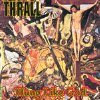 I have great fear that someday, these guys will wake up and be a serious band. Luckily, it hasn’t happened yet, not before releasing yet another awesome Thrall record. Lead signer Mike Hard‘s frightening/hilarious lyrics about the Devil, semen, murder, and the dead people buried in his back yard are enough to make an awful lot of people wonder if maybe he shouldn’t be in the nuthouse he claims to have escaped from, but really, it’s all in fun. It has to be. As a band, Thrall can be catalogued somewhere in between Garage Rock and vampy Blues, in that area where people stick bands like the Cramps and the Lazy Cowgirls.
I have great fear that someday, these guys will wake up and be a serious band. Luckily, it hasn’t happened yet, not before releasing yet another awesome Thrall record. Lead signer Mike Hard‘s frightening/hilarious lyrics about the Devil, semen, murder, and the dead people buried in his back yard are enough to make an awful lot of people wonder if maybe he shouldn’t be in the nuthouse he claims to have escaped from, but really, it’s all in fun. It has to be. As a band, Thrall can be catalogued somewhere in between Garage Rock and vampy Blues, in that area where people stick bands like the Cramps and the Lazy Cowgirls.
-Holly Day-
3 Daft Monkeys – Go Tell The Bees
Label: 3 Daft Monkeys Format: CDS
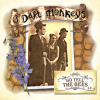 I don’t know if it’s just the stuff I’ve been hearing, or if it’s a general trend, but for some reason there seems to be a resurgence of all things raggle-taggle. Maybe it’s the Eastern European influence thing, and since Gogol Bordello people have suddenly remembered there are people playing these weird things called violins, but it certainly makes a nice change to hear the folky element coming to the fore again. I mean, I know it does every few years, but it’s always nice.
I don’t know if it’s just the stuff I’ve been hearing, or if it’s a general trend, but for some reason there seems to be a resurgence of all things raggle-taggle. Maybe it’s the Eastern European influence thing, and since Gogol Bordello people have suddenly remembered there are people playing these weird things called violins, but it certainly makes a nice change to hear the folky element coming to the fore again. I mean, I know it does every few years, but it’s always nice.
Well, it is when it’s done well, anyway, and 3 Daft Monkeys certainly know how to do it properly, only this is much more of a Western folk-music type thing. This is kind of reminiscent of the early Levellers stuff (you know, the stuff before they got all big and everyone said “I like their early stuff” – this sounds a bit like that “early stuff” that everyone liked, A Weapon Called The Word and so on). And like that, it’s very catchy. Probably the best track on here is “Social Vertigo”, a duet with a nice almost-polka intro suddenly turning into a spinny-round-by-the-elbows-oops-don’t-drop-your-cider campfire stomper, on which the vocals seem to slip alarmingly close to sounding like Half Man Half Biscuit‘s Nigel Blackwell at times, which gives the whole thing a nicely almost-but-not-quite cynical edge.
Although the closer “Astral Eyes” gives it a run for its money, with nice spacey flute and a violin that manages to do that thing stringed instruments do which I’ll never quite get my head round where they sound like there are about four different people playing them. It sounds like there are a lot more daft monkeys than just the three credited, without losing the intimacy that the first three tracks have built up. So yeah, I’d say the bees should DEFINITELY be told. If they find out later that they’d missed out on this stuff, they might be pretty pissed off, and if there’s one thing that’s bound to put you off your picnic, it’s angry bees.
Or maybe a bear.
-Deuteronemu 90210 pursued by a bee-
310 – The Dirty Rope
Label: Leaf Format: CD,LP
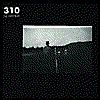 Violin strains to see the source of the shuffling steps and calling from somewhere near. Another in a long string of small moments – written down for which moments? A melody filters through the depths, watery in consistency. Much vibration, and now that of a faint stringed strumming does its thing, amidst the bongos and and brass and mumbling across a playground slide. The hummingbird wings of the beat weave their ways under and beneath – and are we yet at “beats per second” instead of “per minute”?
Violin strains to see the source of the shuffling steps and calling from somewhere near. Another in a long string of small moments – written down for which moments? A melody filters through the depths, watery in consistency. Much vibration, and now that of a faint stringed strumming does its thing, amidst the bongos and and brass and mumbling across a playground slide. The hummingbird wings of the beat weave their ways under and beneath – and are we yet at “beats per second” instead of “per minute”?
A crowd and Dixieland administer their greetings as their sounds are interwoven with the other shreds of a city’s life. “Yeah yeah yeah O yeah” and so on. In rhythm, I mean – not to cast aspersions! And is “yes” truly the essence of popular music? Wow. “Trailing by three points…” and the rest of the piece winnows its way below the quotation marks. There is a palpable sense of expectation in this music – not that of an eternal “now” but that of an eternal “next.” Intercepted commentary edges quietly behind the melody lingering like the changing of a radio dial, and leaves just as quietly. And up pops drumming from its nap – awakened by a dripping tap. Can I get a “Hey now!”? There is a timidity in the sounds – dipping of toes in a pool and acclimation by repetition – that does not suggest a lack of force but instead a lack of forcefulness.
A half-heard welter of words escapes to perhaps form a freeflowing stream of watery reverberations and crackling. There is further another sense – that of pulling something from unquiet spaces. Sculpting with the sweat of the clay instead of the clay itself, as it were. The beats come in again, and quite rightly, so does a heavy breathing. Labouring? It is unclear. The aural Rohrschach test of echoed words plays behind the tapestry – as is “meaning” such an underrated commodity still? “Queens, Brooklyn, Manhattan…” And then – silence, as though there is something left to work with from a quiet space.
-David Cotner-
310 – Prague Rock EP
Label: Leaf Format: 12″
Yes, it’s one of those “hey, wouldn’t it be a great idea if?” projects. “Prague Rock” – aside from the cool title – is a pair of Americans remixing that quintessentially English phenomenon of pompous Progressive Rock. They do Floyd, they do Tull, they do Genesis, they do Yes – they even do King Crimson. It’s all far less interesting than it sounds. They use plummy interview samples of anthemic superstars for that Spinal Tap twist and it’s all just too clever for its own good. It seems a bit of a shame that it sounds shit dull. Makes you wonder if plunderphonic mixology will be the great dinosaur of the Nineties.
Oh well, it’s very limited edition but it should be coming to a bargain basement near you soon!
-Iotar-
Throbbing Gristle – Mutant TG
Label: Novamute Format: CD,2LP
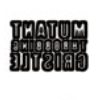 Another inevitable remix album, though previewed in some respects by Chris Carter‘s own Dub versions of Throbbing Gristle tracks as Electronic Ambient Remixes Three, Mutant TG presents a more conventional selection of the form. Naturally, Carter Tutti are in on the act, taking on “Hamburger Lady” and both “Hot On The Heels Of Love” and “United” at the same time. The former has an edgy feel to its minimal FX-wrenched House-based rhythm, while the distinctive prowling synth snarl which makes up so much of the original’s air of imminent disruption plots a sinister course throughout the mix alongside Genesis P-Orridge‘s already echoed-up vocal commentary. “HotHeelsUnited” melds the melodies and lyrical samples from the two tracks over a deep phased Techno rhythm which harks back to the Chris And Cosey sound, but harder and harsher. Once the initial amusement at the hands in the air nature of the track fades, it has to be said that this would most likely be a seriously good dancefloor track, pulling all the dropout tricks while working the chiming melody from “Hot On The Heels Of Love” aginst increasingly echoed snippets of Gen chanting “United”.
Another inevitable remix album, though previewed in some respects by Chris Carter‘s own Dub versions of Throbbing Gristle tracks as Electronic Ambient Remixes Three, Mutant TG presents a more conventional selection of the form. Naturally, Carter Tutti are in on the act, taking on “Hamburger Lady” and both “Hot On The Heels Of Love” and “United” at the same time. The former has an edgy feel to its minimal FX-wrenched House-based rhythm, while the distinctive prowling synth snarl which makes up so much of the original’s air of imminent disruption plots a sinister course throughout the mix alongside Genesis P-Orridge‘s already echoed-up vocal commentary. “HotHeelsUnited” melds the melodies and lyrical samples from the two tracks over a deep phased Techno rhythm which harks back to the Chris And Cosey sound, but harder and harsher. Once the initial amusement at the hands in the air nature of the track fades, it has to be said that this would most likely be a seriously good dancefloor track, pulling all the dropout tricks while working the chiming melody from “Hot On The Heels Of Love” aginst increasingly echoed snippets of Gen chanting “United”.
“United” gets the full Two Lone Swordsmen treatment too, rolling on a bloated bass and high-kicking beat. The vocals have been stuffed through a flanger in this case, and are largely intact: though they also provide the main link to the original track, as the music itself drifts off into TLS grooving pleasantry without either reinforcing or overstaying its welcome. Back to “Hot On The Heels Of Love”, and it seems that this is always going to be the base track of choice, given its position as a proto-Electro classic. Carl Craig‘s “Re-version” starts off with the basic wobbly trundle, re-arranges the electrifying smacks and keeps the post-Moroder feel wriggling on in generally fine style, producing what is much more of a cut and paste job. That is until extra kick drums start to appear and matters drift off into much more generic Techno/House territory on an emergent (and possibly uneccessary) cyclical bassline, producing what is still an acceptable job of reworking. Simon Ratcliffe of Basement Jaxx pulls the track through an electronic grinder, though the results are recognisable as being derived from Throbbing Gristle, the results are slathered with layers of frizzly hiss like so much aural cotton wool. It’s a creditable mix, if somewhat peculiar with its shovelling in of rainforest noises and thunderclaps, and some of the writhing undertow presents a counterpoint to the glistening surface: by the conclusion, the delay effects have seized control and a sensation of “what the fuck happened there?” remains.
Carl Craig turns in some equally distended remixing tricks on “Still Walking”, making a disorienting churn out of the source and letting the rhythms clash with the FX until something gives way – once again, the urge to provide new melodic pleasantries intrudes after a while, but without upsetting the enjoyment of the excess slapback too much. “What A Day” is transformed by Hedonastik into an almost unrecognisable morass of bass and clattery beats, GPO’s original delay-wracked screams now provided with a suitable digital Dub-based backing, running throughout chunks of the sample-peppered tune until the words turn into another instrument in their own right. Motor make “Persuasion” shiver with electrical discharges and hinted voices, and once more the way P-Orridge left the words to struggle through his multifarious organic treatments two-plus decades ago sits firmly at the centre of the resulting morass. This is probably the remix on Mutant TG which sits most firmly in the Industrial tradition of Throbbing Gristle, sounding as if it is coming straight from the mains socket into the ears.
As a footnote, Si Begg has further squeezed the whole of Mutant TG into a one and a quarter minute MP3 micro-mix (which doesn’t appear on the album), but is available here, for what it’s worth.
-Freq1C-
Tight Bro’s From Way Back When – Lend You A Hand
Label: Kill Rock Stars Format: CD,LP
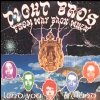 One thing you have to remember about this band-it’s pronounced “broze” and not “brothers.” The rest of the act is just as cool and campy as the name-howling guitars, high pitched screaming vocals and loud bass lines that place this band somewhere between being an authentic ’80s hard core Metal band of the Judas Priest and Iron Maiden caliber and a well-executed parody of everything that made those bands fair game in movies like Spinal Tap. This, their second album, is punctuated by enough anthemic chorus and rapid-fire guitar solo scale-playing to make the dormant headbanger in you whimper for release.
One thing you have to remember about this band-it’s pronounced “broze” and not “brothers.” The rest of the act is just as cool and campy as the name-howling guitars, high pitched screaming vocals and loud bass lines that place this band somewhere between being an authentic ’80s hard core Metal band of the Judas Priest and Iron Maiden caliber and a well-executed parody of everything that made those bands fair game in movies like Spinal Tap. This, their second album, is punctuated by enough anthemic chorus and rapid-fire guitar solo scale-playing to make the dormant headbanger in you whimper for release.
-Holly Day-
Time’s Up – Obsolete
Label: Staalplaat Format: CDS
Think about those two titles, the producers’ (AKA B.Z. and Marc 9) and the record’s, which, incidentally and perhaps relevantly, is available on 76mm CD only. Time’s Up not only splice together environmental and found vinyl sounds into postmodern collages (even if this does include the execrable Mr Jeremy Clarkson for maximum wince effect, it also uses the ever-popular, suavely hammy sonorities of Vincent Price too), they bring into the equation the classic sounds of allegedly dead media. Such greats and fondly remembered tape-fed games machines such as the Commodore 64 and the (still clinging to life) Amiga speech synth whizz by the spoken words of TV links and Skiffy samples, bringing back fond memories of the days when 512kb of RAM seemed like a high-budget, seriously nerdcore dream beyond the average Amstrad CPC owner.
Arranged and introduced by the machine voice as “Levels 1-5”, tracks rejoice in titles like “Pac The Ball” and “Final Time Extension” and are barrages of arcade chaos and low-Techno bleeps and trills, complete with Lemmings chirruping “Oh No!” on “Keep Going”, or the jump-cut end of level monster screen feel of the fast and furiously tinkling blasts of “Final Time Extension”. Sometimes emerging into a curiously Synth-Pop-sounding shuffle, Obsolete is both a laugh and a nostalgia trip in one, just as capable of tripping off into disjointed 21st Century hyperspeed breakbeats made from Nineteen-Eighties sources. Cartoony, shrill, and resolutely 8-bit at heart, it’s one of those delights of living in a rapidly changing media landscape, where yesterday’s toys and tools are never forgotten, but cherished and recyled into gems of timelessness.
-Freq1C-
Timet
– Colazione Con La Pietra
– La Via Negativa
Label: I Dischi Forma Format: CD
 Colazione con la Pietra (Conversation With The Stone) was recorded in 1997 from a vast array of samples from diverse sources, from (to give a only few examples) Sch�berg to Zorn, via Heiner Goebbels, Miles Davis and John Coltrane, to Ninj & Laswell and cinematic points between. Each track credits its sources in some detail, which not only makes for a refreshing change, but points to the theory behind the project. Under the direction of B<>Lorenzo Brusci, the ensemble making up the personnel of Timet for this recording improvise and interact with the ProTools sample edits from Brusci and the live mix to produce what terms a Metacomposition – a recording and compositional technique which explores and develops the basic sequenced framework through an evolutionary lens. The aim is apparently for the musical elements to interact on several levels; to have relationships which have less to do with established interactions – rhythms, melodies – and more to do with the possibilities raised through spontaneous or stochastic events at the time of recording.
Colazione con la Pietra (Conversation With The Stone) was recorded in 1997 from a vast array of samples from diverse sources, from (to give a only few examples) Sch�berg to Zorn, via Heiner Goebbels, Miles Davis and John Coltrane, to Ninj & Laswell and cinematic points between. Each track credits its sources in some detail, which not only makes for a refreshing change, but points to the theory behind the project. Under the direction of B<>Lorenzo Brusci, the ensemble making up the personnel of Timet for this recording improvise and interact with the ProTools sample edits from Brusci and the live mix to produce what terms a Metacomposition – a recording and compositional technique which explores and develops the basic sequenced framework through an evolutionary lens. The aim is apparently for the musical elements to interact on several levels; to have relationships which have less to do with established interactions – rhythms, melodies – and more to do with the possibilities raised through spontaneous or stochastic events at the time of recording.
Theory aside, the results could be considered in several registers; as a fractal whorl of sounds, with snips of a cross-cultural melange thrown together into hallucinogenic miasma; perhaps as nightmare cacophony; in the right frame, as an academic development of Musique Concr�e for the Drum & Bass era. Is it Jazz by another name, Improv, Sampladelic recursion; the continuing march of bricolage into digital chaos? Perhaps, and more again. Like the lysergic soundscapes of Nurse With Wound but less humorous. The whole becomes a continuum of intrusion, with disembodied voices stretching into saxophonic squalls, electronic hazes, instrumental flurries (“real” and sampled) all bound most expressively around by the vocal extemporisations of Monica Demuru and others.
In all its pluderphonic glory Colazione con la Pietra sometimes resembles the results of a bucketful of sound sources emulsified into amorphous sonic gloop which flings out identifiable musical droplets as it is mixed and stirred and occasionally splashed into an aural Pollock-scape. This rather convoluted metaphor perhaps doesn’t do the album justice; sometimes coldly calculated, but not often enough to be tedious, thanks to its propulsive, nearly random-access, accretion of sound on sound in waves and eddies of mood, Colazione startles the fringes of the Avant-Jazz-Breakbeat interface on more than one occasion, with excursions into a deracinated Funk surprise party too from time to time.
 La Via Negativa develops the Metacompositional idea further into abstraction, with Brusci moulding the sampled sounds of a Century, High and Pop art alike, into a virtual sound sculpture. By contrast with Colazione, this recording moves exponentially in several directions; the paradigms of drama and opera are applied to millions of edits, cuts, and pastes, emerging as a highly disturbing collage of sonic elements removed by several degrees from their original sources to take up microcosmic positions in the newly-unified whole. Here the resemblances become broadband indeed taking in the feel of digital channel-hopping across multiple screens, speakers, lives.
La Via Negativa develops the Metacompositional idea further into abstraction, with Brusci moulding the sampled sounds of a Century, High and Pop art alike, into a virtual sound sculpture. By contrast with Colazione, this recording moves exponentially in several directions; the paradigms of drama and opera are applied to millions of edits, cuts, and pastes, emerging as a highly disturbing collage of sonic elements removed by several degrees from their original sources to take up microcosmic positions in the newly-unified whole. Here the resemblances become broadband indeed taking in the feel of digital channel-hopping across multiple screens, speakers, lives.
The breadth of material present is quite breathtaking on occasion, but even beyond the listed sample sources, apart from the theoritical base, aside from the layered sleeve images, what Timet establish is a zone of musical reference which slides from perspective to alternate perspective with each listen. The results of the laborious edits, the intervention of the musicians and the redistributions of the producers are eventually visceral, not just intellectual. La Via Negativa is perhaps the more stimulating and vibrantly peripatetic of the two recordings, the more concentrated in its deconstructive ablation of the process of composition, hopping with something approaching gleeful semi-seriousness from mimetic node to syncretic agglomeration in satiating rhizomatic exposition. When the disc finally clicks to a halt, it is as if a connection has been pulled from the cultural networks of these ever-regurgitative times.
-Antron S. Meister-
Timet – Shadows
Label: I Dischi Forma Format: CD
 Shadows has a beautiful cover. And I do mean the cover the CD comes in. The twenty-five short tracks inside have some beautiful moments. Mostly it is a collection of samples run forwards and backwards, too slow, too fast; all distorted and geared up to be used as, well, samples. Reminiscent of the “Smells of Children” remix of Marilyn Manson or a cassette one would buy to have samples of Halloween noises with which to aurally decorate a haunted house, it seems to have little point, even if it does have innumerable uses. I think sometimes music is for muscians. This CD is like samples for samplers.
Shadows has a beautiful cover. And I do mean the cover the CD comes in. The twenty-five short tracks inside have some beautiful moments. Mostly it is a collection of samples run forwards and backwards, too slow, too fast; all distorted and geared up to be used as, well, samples. Reminiscent of the “Smells of Children” remix of Marilyn Manson or a cassette one would buy to have samples of Halloween noises with which to aurally decorate a haunted house, it seems to have little point, even if it does have innumerable uses. I think sometimes music is for muscians. This CD is like samples for samplers.
A great collection for an audio tech with pro loops and artistic groupings of electronics, string arrangements and industrial noises. Perhaps this is a version of functional music. You might not want to sit and listen to it, but it could come in handy. In fact, with over 120 credits given to the sourcing of all this sampling, one could make a game out of trying to find the Henry Cow spot, the Mozart piece, the Tricky mixture. And if you don’t like the way Timet‘s Andrea De Luca and Lorenzo Brusci have decided to put it all together, you could, without doubt, go on and make your own version of it all. Ultimate modernity – function, versatility, all wrapped up in an artful package.
-Lilly Novak-
Amon Tobin – Supermodified
Label: Ninja Tune Format: CD,2LP
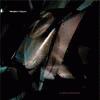 Organ grinds down the groove and for this a drive may be called on – professionally or automotively, either is fine. The drum solo is announced. But what has been modified, in a super way? The beat? The rhythm? Lycra? Much applause and crackling of records sampled. Apparently this record is “all clean”, oddly enough. So says the promotional sticker. The pantshaking bass makes a gradual reappearance, and these sounds shimmer like hot pavement; a pall in the pile. Yet no matter how “strange” the sounds – there is always the beat, present, as backup, as safety.
Organ grinds down the groove and for this a drive may be called on – professionally or automotively, either is fine. The drum solo is announced. But what has been modified, in a super way? The beat? The rhythm? Lycra? Much applause and crackling of records sampled. Apparently this record is “all clean”, oddly enough. So says the promotional sticker. The pantshaking bass makes a gradual reappearance, and these sounds shimmer like hot pavement; a pall in the pile. Yet no matter how “strange” the sounds – there is always the beat, present, as backup, as safety.
Is the point to “keep it real”? Is it utterly important to blur the line between the sample and the original instrument? The point of origin – and the super-modified? Oddly enough, now comes the human beatbox. And, of course, these days there are maschines that re-create the human beatbox. And do the influences on the music come from deeper sources than referentialism and popular culture? What one wants to be, to see, to be like? As a person? How underrated is that? The rhino jockey comes into play, building and expanding its charge…and then the rhythmic steel, bass and horns. Is the idea to present sounds logically, or sequentially? Not just in this album – but in any series of recordings?
-David Cotner-
Tomorrowland – Sequence Of The Negative Space Changes
Label: Kranky Format: CD,LP
Tomorrowland are another of those interesting Kranky duos huddled round the mixer, spreading loops, delays and extended wafts of processed feedback like so much electric cotton wool. In this case, Steve Baker and Nick Brackney hitch the by-now standard Isolationist instruments – guitar, synths, organs – to their eight-track to produce ten pieces of bleeping, circling, warbling and meeping.
Fonder of the glitch and tape hiss as sound source than some, listening to Sequence of Negative Space Changes easily becomes a background task at times – sounds slip over the synapses like filtered waterfalls of notes and noise, collaged into tone-patterns of subtly-shifting stasis. But this is what Ambient music should be like; meditative and expansive. Each individual track blurs into another, combining to make for an occasionally overall picture with a slightly dark edge creeping in around the deep bass swathes of “Saturn”. As with a guitar left to feed back through its amp and effects, a technique used and augmented here, the sounds generated often become so densely concentrated and otherworldly that they’re almost unbearably intense (particularly the tumbling analogue burbles in “Dustbot”), and eerily present in the foreground.
By the time the album closes with the relaxing soma bath of “Mantric”, everyday noise seems to echo and trill with audible dust – as a brief trip into another state of (not necessarily chemically altered) consciousness, Sequence provides a pretty relaxing holiday from reality, space and time.
-Antron S. Meister-
Tone Language – Patience Is The Key
Label: Korm Platics Format: CD
Apparently Korm Plastics are going off Pop, in as much as this first CD from collaborators Lee Norris (AKA Metamatics and Norken) and Ichiro and Kenji Taniguchi (who record Drum & Bass together as Reflection) follows the dreamy glitch ambience template established by Oval and long since incorporated into corporate advertising. However, it’s to be hoped Tone Language don’t succumb to the same fate. Since the track titles are quite descriptive, it’s instructive to list a few to give an idea of the flavour of this variety of studio recycling: “The Robot Sparrows”; “Ocean”; “A Plant’s Day In Stages” – and some less obvious like “Record #1”.
So what makes this different from any other glitch recording? Perhaps less actual glitches are used here than at the hands and mice of others, with tones and drones moving in layers as distinct elements with fragmented sample sequences making intrusions or extrusions as applicable. It’s all quite abstract though, with a predeliction for simplicity and the definition of space evident as themes. Stillness, shifts from sparse stasis to lateral movement. Motion towards energy dissipated before too much momentum is acheived. Pointed calm. Bass which exists around the level of breathing. Chirruping expressions of electronic alertness, elevated up to aspirant plateaux, becoming an ultrasonic whole in and of themselves. Moving without immediately obvious travelling, but awakening somewhere else other.
Patience Is The Key deepens out as it progesses from the initial plain; by track 5, “Winter’s Thrill”, complexity makes for some subtle shifts of time and related dimensions. The combination of pure tones with clipped phone-dialer detritus makes for a pleasingly even balance, and the clipped relationship between this form of Ambient and Drum & Bass becomes clearer, the way Main’s drones stretched the format of Psychedelic Rock into the abstract stratoshphere. A well-titled CD from a suitably-named group.
-Linus Tossio-
Rafael Toral – Violence Of Discovery And Calm Of Acceptance
Label: Touch(UK,America)/Staubgold (Europe) Format: CD
 Rafel Toral is one of a newer generation of experimental guitarists who strive to wrestle the last drops of possibility from an instrument from which so much diverse noise (never mind melody) has been extracted already that it’s no wonder that the only really drastic step left to take is to deconstruct the whole thing digitally. So following in the string bends and preparations of the likes of Robert Hampson, Lee Renaldo, Jim O’Rourke, Derek Bailey and so on, Toral opts for the deceptively simple approach of making the guitar sing the body and neck electric.
Rafel Toral is one of a newer generation of experimental guitarists who strive to wrestle the last drops of possibility from an instrument from which so much diverse noise (never mind melody) has been extracted already that it’s no wonder that the only really drastic step left to take is to deconstruct the whole thing digitally. So following in the string bends and preparations of the likes of Robert Hampson, Lee Renaldo, Jim O’Rourke, Derek Bailey and so on, Toral opts for the deceptively simple approach of making the guitar sing the body and neck electric.
Through ten tracks of uncurling analogue electronics and string-driven sounds, Violence Of Discovery and Calm Of Acceptance is crafted into an album of ambience which even manages to include the sound of amplified silence on a Space Shuttle mission launch webcast, a trick of which Eno would no doubt be proud. Tones and drones luxuriate without lounging or wafting into the realms of pomposity or self-indulgence – the feeling generated is more that Rafael Toral is actively listening to the sounds he’s making as both an outsider and creator. Regardless of the truth or not of this impression, the end result is a disc which roams from the rising effects trails into the tightly-controlled diversion of feedback into rhythms and half-framed melodies and chords, plateauing in areas where the sounds become scratchily electrical rather than merely plain and simply electronic. Tracks like “Mixed States Uncoded” bring to mind the better days of Flying Saucer Attack, conjouring an evocatively meditative quality from the guitars (and bass in this case) which inspires a gentle relaxation into the flow of the by-now uplifting music.
-Freq1C-
Tortoise vs. Derrick Carter – D’s Winter
Label: City Slang Format: 12″
As Tortoise seem determined to be remixed in as many styles and genres as possible, it’s not to great a surprise that their latest deconstruction comes courtesy of Chicago producer Derrick Carter’s take on “In Sarah, Mencken, Christ and Beethoven There Were Women and Men” from TNT. Divided between the slow-stomping “D’s Winter Crazy Dub” and the more relaxed “D’s Winter Outtake,” Carter re-jigs the basskicks, Acid squelches and piano frills into a more linear House version of one of the album’s Jazzier moments, stripping down the complexity to allow some more subtle nuances through.
Slow by dance music standards, both tracks are still going to find more appreciation in a chill-out zone (at home or in a club) than on the dancefloor, though “Winter Dub” picks up the beat as a Techno counterpoint to the Motorik Doppler effect of the astounding “Gamera” single. Following on from the Remixed collection, and preceeding Autechre’s efforts, Tortoise will soon have had a substantial chunk of their oeuvre, sliced, diced and abused in ever-more diffuse ways by every remixer under the sun, which fits their rapidly diversifying sound rather neatly into the pre-Millenial confusion of boundaries. It’s a tough job, and everyone’s doing it…
-Antron S. Meister-
Training For Utopia – Throwing A Wrench Into The American Music Machine
Label: Solid State/Tooth & Nail Format: CD
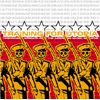 With a band that looks, sounds and has a jewel case insert like theirs, you could be forgiven for beleiving that the name should be Totally Fucked Up, but being as TFU are one of America’s ever-growing (Jesus) army of Christian rock bands who don’t play lame-ass pussy-shit AOR, but who recognise that a fair few of God’s chosen people wanna Rawk (that’s RAWK, as opposed to mere “Rocking”), it in fact stands for the far less bitchin’ but still failry angry and militant (in a Waco kinda way) Training For Utopia. But it gets weirder -in a good way – as opposed to yer usual God-bothering Metallers, TFU are a combination of Christians and Straight-edgers who never appear to sing about God.
With a band that looks, sounds and has a jewel case insert like theirs, you could be forgiven for beleiving that the name should be Totally Fucked Up, but being as TFU are one of America’s ever-growing (Jesus) army of Christian rock bands who don’t play lame-ass pussy-shit AOR, but who recognise that a fair few of God’s chosen people wanna Rawk (that’s RAWK, as opposed to mere “Rocking”), it in fact stands for the far less bitchin’ but still failry angry and militant (in a Waco kinda way) Training For Utopia. But it gets weirder -in a good way – as opposed to yer usual God-bothering Metallers, TFU are a combination of Christians and Straight-edgers who never appear to sing about God.
Lyrically the come across as an un(?)holy blend of Marilyn Manson and Faith No More circa Angel Dust, both of which also function quite handily as musical reference points, along with the more guitar-based parts of Nine Inch Nails (or should we just say Filter‘s first album?), a less-Funky Rage Against The Machine and even (dare I say it!) Godflesh. Oh, and Lard and Ministry too. But much as I like this album, where TFU really come into their own is in their track titles – apart from the a-bit-too-cringeworthy-young-American-hardcore-band-ness of “50,000 Screaming TFU Fans Can’t Be Wrong” – they have such delights as “Burt Reynolds vs. Godzilla”, “Seeing-Eye Fruit Bat” (a name even the mighty Steve Albini would kill, or at the very least maim hideously for), “New York city Is Overrated” and the totally fab “Tennessee Midget.”
Guitars grind, drums go Boom Boom Boom, a bloke screams a lot, and the bass prowls along underneath like a dormant Great Old One waiting until “the stars are right” and it can help Great Cthulhu kick insignificant human ass. Nice. Top marks also go to TFU for realising that “Praising Him on stringed instruments” also leaves open the possibility of plugging aforesaid instruments into bloody big amps and turning the fuckers up to eleven (What’s the Biblical position on samplers? – Ed.). Make a really loud noise unto the Lord!
Amen to that.
-Deuteronemu 90210 “Want Beer”-
Trans Am – Red Line
Label: Thrill Jockey Format: CD
 Trying to pin down the Trans Am Sound is nearly impossible, like trying to pin down the real first day of winter. While last year’s William S.Burroughs-meets-Tron album, Futureworld, was chillingly stark and decidedly not in favor of the future, especially a future where there’s “no future boy…no future girl,” the 72-minute “Red Line” is a stark production that goes way off in the other direction – into the world of sleazy Jazz clubs and street-budget porno sets.
Trying to pin down the Trans Am Sound is nearly impossible, like trying to pin down the real first day of winter. While last year’s William S.Burroughs-meets-Tron album, Futureworld, was chillingly stark and decidedly not in favor of the future, especially a future where there’s “no future boy…no future girl,” the 72-minute “Red Line” is a stark production that goes way off in the other direction – into the world of sleazy Jazz clubs and street-budget porno sets.
Perhaps the band itself presents its sexy new agenda best in the nail-you-on-the-floor tense Ambient layers of “Where Do You Want To Fuck Today?” or even between the lines of the straight-out Eighties rock of “Ragged Agenda,” where the vocalist sounds like he’s muttering something about “ripping out seams” over and over and over under his breath. The early-Techno aspect of Trans Am that endeared them to audiences previously is still there – it’s just mixed in with everything from Garage Rock to Jesus And Mary Chain guitar drones to radio-friendly (their words, not mine) Pop songs. Somehow, though, even with all the contrasting elements presented here, the album feels like one big seamless epic – nothing seems even slightly out of place.
-Holly Day-
Triosk – The Headlight Serenade (Special Edition)
Label: Leaf Format: 2CD
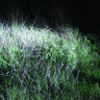 A very relaxed third and final album from the pre-Pivot Australian avant-garde jazz trio, who consisted of Adrian Klumpes (piano/synth), Laurence Pike (drums/percussion), and Ben Walpes (bass). The Headlight Serenade drifts seamlessly between jazz and electronica, recreating a spontaneous and energetic drum and bass feel. Laurence Pike described the drift as “the transitory way that the headlights pass across objects, creating split second moments and alternate spaces in time”. Triosk move on from the previous album Moment Returns (2004), which was more improvisational. On The Headlight Serenade they have gone over their improvised material and refined it. The result is more purposeful, and Triosk sound as if they are working to a plan, albeit a loosely formed and drifting one. Sometimes too much effort and planning can kill an album, but The Headlight Serenade retains the spontaneity of improvised jazz and electronica. Purposeful spontaneity.
A very relaxed third and final album from the pre-Pivot Australian avant-garde jazz trio, who consisted of Adrian Klumpes (piano/synth), Laurence Pike (drums/percussion), and Ben Walpes (bass). The Headlight Serenade drifts seamlessly between jazz and electronica, recreating a spontaneous and energetic drum and bass feel. Laurence Pike described the drift as “the transitory way that the headlights pass across objects, creating split second moments and alternate spaces in time”. Triosk move on from the previous album Moment Returns (2004), which was more improvisational. On The Headlight Serenade they have gone over their improvised material and refined it. The result is more purposeful, and Triosk sound as if they are working to a plan, albeit a loosely formed and drifting one. Sometimes too much effort and planning can kill an album, but The Headlight Serenade retains the spontaneity of improvised jazz and electronica. Purposeful spontaneity.
Originally released in 2006, the special edition contains an extra CD of live material recorded for the Australian broadcaster ABC in 2006. The tracks are looser – a quality of most live improvisation – but also a whole lot darker. The Headlight Serenade has its moments of darkness, but overall I found it mellow and gentle. On the live tracks the drifting ambient electronics and effortless jazz drum and bass is replaced by a frantic sound. Electronics scrape, buzz, and interrupt the sound. The trio seem to play with a certain desperation, as if frantically grasping for something. The contrast of the two CDs makes for an intriguing and balanced album. Focus on one side, raw spontaneity on the other. One side light, one side dark. It also offers a great insight into the creation of The Headlight Serenade. It was born out of improvised music, and the live CD demonstrates the primal sound it emerged from.
-Alaric-
Uli Troyer – Nok
Label: Mego Format: 3″ CD
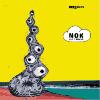 The clips and pitches run high, deep and backwards – a flashback of glass, under glass. Various cameras group on the cover and is it the soup of a beatladen ocean that rises through the platinum laudanum lens? Their time ticks onward, moving as though caught beneath both a proverbial and an actual microscope.
The clips and pitches run high, deep and backwards – a flashback of glass, under glass. Various cameras group on the cover and is it the soup of a beatladen ocean that rises through the platinum laudanum lens? Their time ticks onward, moving as though caught beneath both a proverbial and an actual microscope.
Paramecium – where do they live, on the surface of a 3″ compact disc? Where do they enter into the sound? Might some live along the infinite klines of the laser beam? Have we been listening to the microscopic world as well, all this time? Do they catch the invisible lands and speak to the brethren bacteria of the ear?
-David Cotner-
Tube Jerk – Fold
Label: Ill Format: 2LP,CD
Tube Jerk should have entered the realm of Freq quite some time ago, “Daddy’s Diggin’ Gravy in the Basement” should have been reviewed, it had great potential – a nice track with a Surgeon remix – but it also had the black hole of my dwellings to contend with. The CD single vanished. Until the day it reappears, let’s just assume it’s good – why shouldn`t it be, after all Fold is rather good too.
Ian Wright is a name I`ve seen cropping up on records time after time, there was the distorted paindub Jungle of Pin, then the funk overload House collaborations of Fat Coda. He makes strange off the wall music with a disturbing twist, and I’m always intrigued by a record bearing his name. Like a lot of Ladomat 2000 productions, his music bears the unusual traits of character and individuality. Pin was like no other Jungle I`ve heard before as it had a sound all of its own. Now that may not make for chart toppers or club anthems, but it actually stands a chance of being appreciated and remembered.
Now we`ve got the fucked-up Techno House of Tube Jerk, and I mean Fucked Up. The rhythm is pure pumping House, pulsating bass and abrasive cymbals; the basslines and synths are something else. Trance bores me, I wouldn`t listen to a grade 5 piano student practising their scales, so why should I listen to someone doing the same with a 303? I like Techno that makes me assume that massive cruelty had to be inflicted upon the synthesiser to produce the noises it’s making. And yes, Tube Jerk tortures the synthesisers very much in the same vein as Surgeon or Synewave New York.
Whether you like it or not, Fold is definitely a post-Speed Garage phenomena. I’ve gone on at length about why Speed Garage is an abomination (in the bad sense of the word) – so here’s not the place to irritate an old wound. It’s enough to say that I think somebody needs to take Speed Garage off the factory production line, scare the living crap out of it, and then put it to some interesting use. Tube Jerk does this rather well. In his amorphous way Mr. Wright has grabbed hold of the beast and incorporated it into his style.
The wobbly basslines are ever-present, but somehow they are more disturbed. I suppose it’s inevitable really, one day speed garage was going to overdo the amphetamines, the street cred cool evaporates leaving the schizoid husk beneath. It happens to people, so why shouldn`t it happen to music that associates itself with speed? It has, Mr. Wright has seen to that. The basslines seep through the speakers, making me think: now there’s a damm good bassline – Just as Speed Garage did the first time I heard it. Only I’m sick to death of the genre now. Tube Jerk has those pulverising basslines, not just pulverising, but truly demented. This isn`t the bass that’s wobbling over the abyss of its own self-indulgence, it’s been dragged down. The Devil has chewed it up and spat it back out, and Satan’s phlegm is always more interesting that 22 Old Skool greats Sellotaped back to back.
Need I say more?
-Emacs-
Tuxedomoon – No Tears/What Use
Label: International Deejay Gigolo Format: CD
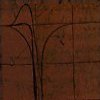 Here’s a blast from the past. In the days before House music Tuxedomoon were out there creating tracks like “No Tears” and “What Use”. It’s Punk, Trash Rock, Industrial, the rough edge of the Eighties all rolled up into one. It’s what your Derek Mays and Carl Craigs were weaned on. And it Rocks – the originals blast through the speakers with all the attitude and insanity of the Butthole Surfers.
Here’s a blast from the past. In the days before House music Tuxedomoon were out there creating tracks like “No Tears” and “What Use”. It’s Punk, Trash Rock, Industrial, the rough edge of the Eighties all rolled up into one. It’s what your Derek Mays and Carl Craigs were weaned on. And it Rocks – the originals blast through the speakers with all the attitude and insanity of the Butthole Surfers.
Add to this remixes by Continuous Mode, Adult, Heinrich Mller, Ectomorph, and my fave Hans Platzgumer‘s bulldozing Electro mix of “No Tears” and the result can only be a winner. You’ve got to give International Deejay Gigolo their credit: they do release exceedingly good records.
-ap-
TV Pow – Mort Aux Vaches: Being Nice Is Funny
Label: Staalplaat Format: CD
Being Nice Is Funny seems content to wallow in it’s own proximity to background noise at first – leave the volume down low in a room, and there appears to be no sound. Turn it up, and the shuffling of “All Previous Systems Included” sets proceedings up for a session of extremes. The low rumble in the background is as comforting and unsettling as the roar of distant traffic through double-glazing, but the insertion of sharply-spiked stabs of squittering electronic deviation soon become as exquisitely intrusive as a water torture device. As the CD continues (the tracks flow pretty much in movements rather than individually identifiable pieces), the slow murmur of low-level sound is sprinkled with sparse droplets of noise; a shimmer here, a change of pitch into throbbing there, and scurrying impressions of tones and instruments grinding against each other at tectonic levels. Imagine the reaction of the poor casual listeners to the Dutch VPRO station who tuned in to the original transmission of this by mistake…
There is motion, and possibly emotion too, here, but it’s progressing at the rate and intensity of a washing machine heard vibrating through the structure of a building, with a similar identification through familiarity necessary in placing the sounds in a context other than puzzlement or curiousity. Which of course is part of the listening pleasure of Being Nice Is Funny, as there are melodies to be heard, it’s just that they’re buried so low down in the mix that turning the volume up becomes a matter of risk-taking based on the uncertainty that the speakers won’t suddenly blow out on a sharp spike of massive amplification. Such tension adds an unusual frisson – one which doesn’t quite have the same implications as listening on headphones, granted, but why not listen dangerously?
Then there’s the humour pointed at by thoroughly misleading titles like “Sounds Pretty Good For That Type Of Thing” and “There’s No Such Thing As A DJ, Everyone’s an MC (House Mix)”, where the more audible frequencies pep up their intensity into relatively faster passages of surface noise and a soon to be all-pervasive shimmer, with a rising slice of actual rhythm and glitch in the concluding “American Temporary”. Of course, this is just about where that cone-endangering raising of the volume comes in, just about timed for the moment where the listener lulled into drowsiness gets startled by the speakers rattling their cabinets and anything in the near vicinity for a few briefly intense seconds.
-Linus Tossio-
Twilight Circus Dub Sound System – Dub Plate Selection
Label: M Records Format: CD
I first encountered Twilight Circus Dub Sound System at a Legendary Pink Dots gig in Chicago. Ryan Moore, who handles bass and percussion duties for the Pink Dots, strode onto the stage with a hand-held Theremin and pink feather boa and proceeded to freak out all the Goths with some very mellow cosmic Dub; all swirly synth noises, deep rolling bass-lines and trippy samples – kind of like a slightly more sinister Dreadzone without the uplifting vocals. If you keep that image in your mind then this album won’t hold too many surprises; in fact, by and large, there are considerably fewer “trippy samples” than I’d expected from a member of the Pink Dots, and Dub Plate Selection ultimately comes across as a fairly typical slice of spaced out Dub.
To an extent, that’s not actually too big a criticism – I’m certainly not going so far as to describe this album as being overtly generic; no platonic form allegations here; but rather that it is a nigh perfect example of that sound you’re looking for at 10pm on a warm summer night when your head is a little fuzzy and you can’t see yourself moving any further than the kitchen for the next few hours and you say to yourself, “What i could really do with now is some Dub!” That said, the fact that Dub Plate Selection is by-and-large a fairly predictable album; finely crafted, skilfully arranged and strangely intricate in places; but still fairly predictable. It’s unlikely that it’ll ever stand out enough from the pack to get it on heavy rotation those warm summer nights.
So yeah, all in all this is a rich, deep, mellow album full of exactly what you want from your Dub. It’s a very pleasant aural experience, with more than enough unusual noises to avoid slipping into an Ambient or Trance groove – so if you’re looking for something along those lines then this is probably the shiny silver disc for you; the same could also be said of a lot of other albums, it’s true, but the dearth of vocals on Dub Plate Selection may actually turn out to be a selling point in a genre that’s already got enough deeply stoned voices impelling you to free the weed.
-Grufty Jim-
Twilight Circus Dub Sound System – Dub Plates Volume 2
Label: M Records Format: LP,CD
 Pressed up on virgin 180-gram vinyl and mastered at the Berlin home of heavyweight bass productions, the ever-estimable Dub Plates And Mastering, Dub Plates Volume Two just feels so right it almost shakes the floor and windows by its presence on the turntable. The slight hiss of needle in groove, the faint pop of genuine analogue friction between diamond and plastic – ahh, the joys of so-called (near-)dead media! (Incidentally, the LP edition has since been joined by a CD release).
Pressed up on virgin 180-gram vinyl and mastered at the Berlin home of heavyweight bass productions, the ever-estimable Dub Plates And Mastering, Dub Plates Volume Two just feels so right it almost shakes the floor and windows by its presence on the turntable. The slight hiss of needle in groove, the faint pop of genuine analogue friction between diamond and plastic – ahh, the joys of so-called (near-)dead media! (Incidentally, the LP edition has since been joined by a CD release).
This, the second collection of Twilight Circus dub plates originally issued to sound systems and DJs around the world, marks out some further glorious vibrations from Holland and/or Canada’s (Hell, Europe and North America’s) premier exponent of realtime studio mixdown Reggae in a dub style. With most instruments played live by Ryan Moore, it’s still surprising after all these years that Twilight Circus sounds so much like a “real” band – but that’s one of the advantages of using the studio as another instrument. And in true Jamaican producer tradition, there’s a photo of the setup on the back sleeve for techies to pore over and consider.
Less production-minded listeners can just sit back, or even better recline, and feel the results of all that analogue technology combined with years of loving experience which have gone into those grooves, vinyl and musical alike. Drums crash, percussion rattles, and above all, bass flows under it all. Swirling organs, trilling melodicas, the tenderly prowling harrumph of synthesizer bass riff of the latest version of “Filter 13” in “Ultra Dub” guise which concludes the set so marvellously, all wrapped and warped in the ever-recursing dreamstates drawn from echo box, echo box, echo box… – each release by Moore adds futher incremental axial tilt to the world, encourages the inhalation of more fragrant smoke, wears down the soles of shoes shuffling and stepping to the heart and soul beat. This is only right and proper, and true.
-Antron S. Meister-
Twilight Circus – Dub Plates Volume 3
Label: M Format: CD,LP
Sometimes it’s difficult to say anything about Dub. I’m sure everyone who has ever heard any will have an instant sound picture of what it entails. So approaching this, and remembering I was a bit underwhelmed by the last effort , I was stuck at first for something to say. However, once in the machine it is apparent that Ryan Moore has produced a sharp, clear set of dub plates kicking off with “Jah Steppa”. This one explodes out of the speakers as drums echo and that familiar organ sound rides over them. I was expecting “Mad Groove” to be, well..’mad’ but what it actually does is foreground the percussion with exceptional clarity while that phantom organ drifts in and out of the mix. “Floor Plate” features some bubbling electronics let loose from a sci-fi scenario while the slabs of keyboard suggest something gothic. Gothic Dub ?
The last two tracks made the most impression on me. “Depth Charge Remix” crams everything in, fills the speakers and is a razor sharp slice of Dub. Finally, “Binghi – Brain Melt Mix” is something different and seems set apart from the rest of the pieces though it retains some similarities. It has a far more metallic quality and mixes Industrial noise with what sounds like a sampled sitar. There may be that steady Dub rhythm but the other ingredients are from a more abstract sound base. It is a good track to end on since it suggests, to me at least, that Moore may by moving into other territories whilst firmly holding on to his Dub foundation.
-Paul Donnelly-
Twilight Circus Dub Soundsystem – The Essential Collection
Label: M Records Format: LP,CD
 For once, a best-of collection which is exactly as described in the title. Collecting highlightsfrom Ryan Moores‘s fearsomely prolific back catalogue, The Essential Collection swings into the heaviest of Dub spaces with an easy grooves, a subtle appreciation of how to propel the listener’s brain skyward while throbbing their internal organs at the lowest of low ends – soemtimes the bass feels so weighty as to make movement from a prone position seem impossible.
For once, a best-of collection which is exactly as described in the title. Collecting highlightsfrom Ryan Moores‘s fearsomely prolific back catalogue, The Essential Collection swings into the heaviest of Dub spaces with an easy grooves, a subtle appreciation of how to propel the listener’s brain skyward while throbbing their internal organs at the lowest of low ends – soemtimes the bass feels so weighty as to make movement from a prone position seem impossible.
With a slew of versions, dubplates and downright classics, this Twilight Circus anthology acts as both a taster for and the edited highlights of what might be termed the instrumental phase of Moore’s Reggae activities. Newer pastures with the likes of legendary deejays and vocalists Big Youth and Luciano are in development, but until then, the delicious booming warmth and trickling echoplex mellowness of “Lowell And Nine”, the relaxed passing-train rumble and flickering dynamics of “Fams” or the twangy keyboards and strummed guitar melodies of the stadium-filling “Horsie” will more than suffice. As for “Filter 13” with its nearly-evil levels of beautiful analogue synth swirls and bassline pressure, Moore takes the Dub format into the outer reaches where the heritage of avant-garde electronics and sound system hedonism meet in the idealised dancehall of the mind – and better yet, of the club space for the full interlocking drum and bass effect, as also found on the aptly-titled and equally monumentally-stepping “Floorshaker”.
Just one problem then – once having sampled the delights of the generous and inviting Twilight Circus sound on The Essential Collection, how to resist collecting the whole set?
-Richard Fontenoy-
Twine – Recorder
Label: BiP HoP Format: CD
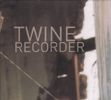 Recorder starts off in the best traditions of Fripp and Eno‘s No Pussyfooting use of swirling guitars and electrostatic glitches to the nth degree, which is a great combination. The use of guitar adds a warmth to the album that just isn’t there with digital manipulations on their own. It provides drones and snatches of melody that float alongside microsonic textures and rhythms.
Recorder starts off in the best traditions of Fripp and Eno‘s No Pussyfooting use of swirling guitars and electrostatic glitches to the nth degree, which is a great combination. The use of guitar adds a warmth to the album that just isn’t there with digital manipulations on their own. It provides drones and snatches of melody that float alongside microsonic textures and rhythms.
There are some great moments on this album. The last track “There Is No One Else” is superb, while “Fine Music” is … well … fine music. It’s a droning and distant ultra slow slab of ambience. Another of my favourites is the bonus Quicktime movie “Where Things Seem To Glow Without End”. Visually it’s a slow drift of abstract lines dancing across the screen – somewhere between Mark Rothko and a dead TV channel accompanied by wonderful floating guitars and digital textures.
American duo Greg Malcolm and Chad Mossholder have struck the golden mean of glitch driven Electronica. Recorder explores some interesting territory while remaining very listenable.
– stage0 –
Two Lone Swordsmen – A Bag Of Blue Sparks
Label: Warp Format: 2×12″, 7″, CDS
Former Sabres Of Paradise collaborators Andy Weatherall and Keith Tenniswood yet again prove that it’s not only the new guys in Techno than can cut it right from the outset of this six track EP. Beginning with “Sticky” – a pretty straightforward, but very well done late night floor-filler – you get yer repeated vocal sample, you got yer drums, you got yer squidgy noises – but you’ve also got some mad background atmospherics that wouldn’t sound out of place on a Coil track, and you’ve got that sort of “KKKcccchhhhWHOOSH” sound off the beginning of “Warlock” by Skinny Puppy, and that, I’m afraid, does it for me every time.
The implausibly-titled “Gay Spunk” is all pumping hi-Qs and weird machinery, with the Swordsmen once again proving that the best Techno is actually impossible to describe on paper without sounding like a twat. Elsewhere we have “Electric For Bird” – minimalist, in a kind of Eighties sort of way, but with some lovely – um… what can only be described as “encroaching bass” – give it a listen and see if you know what I mean. Oh, God, how do I describe this? (It makes you yearn for the days of the Cocteau Twins and “swirling vortices of sound”). Basically, it’s got mad dancey bits (“Sticky”, “Black Commandments 2”), dubby bits (“Black Commandments”) and all sorts of mental fucked-up and FX-ed to infinity NOISES (dotted here and there around the place) to remind you of those more adventurous Sabres tracks, and, as is usually the case with Weatherall and Co., it manages to combine the feel-good energy of the best Techno with the spooky, threatening ambience of the best experimental music.
If you want a better idea of what it sounds like, buy it, get twatted, and play it. Repeatedly.
-Deuteronomy 90210-
Two Lone Swordsmen – Stay Down
Label: Warp Format: CD,LP
Stay Down takes considerable care to develop the sounds found on the “Bag Of Blue Sparks” EP, slipping pings, bleeps, washes and more unidentifiable sounds into the slowly-evolving mix. Tracks rise up from the passage of time rather than always appearing as clearly-defined entities – though when one such as “Big Clapper” does make itself known, it’s as part of a relaxed continuum.
Andy Weatherall and Keith Tinniswood delight in shoehorning Flamenco or Classical elements into the general flow, dextrously dropping out of one process and into another. Their pulsing plops and quasi-cello bass thrums for example in “Ivy And Lead” may no longer be on the cutting edge (if they ever were): everyone with a sampler seems to be up to something along these lines right now. However, the gimmickry and novelty have worn off, so it’s up to duos such as the Swordsmen to maintain the momentum, to make something more than a set of clever but often empty regurgitations of other artists’ completed experiments.
Most of the time they do, even if titles like “We Change The Frequency” aren’t redolent of much more than a Post Modern smirk – fortunately, the track itself is a subtly dense piece of shuddering, shimmering and clattering which overcomes its dull name, and even has a jokey Electro Vocoder interlude to disorientate. “Spine Bubbles” is a much better title, as is “Mr. Paris’ Monster,” even if the rolling ambience schtick is still done better by Autechre (who outdo almost everyone in the obscurantist name stakes). However, these and the propulsive workaday Techno groove of “No Red Stopping” or the breakbeat flutters of “Light The Last Flare” conceal a myriad selection of low-mixed hooks and glitches to give them more than the average amount of worthwhile pleasures. As for “We Discordians,” any track which refers to Robert Anton Wilson and wiggles like an electronic Weeble is on to something, but it’s the closing fizzles and accreting noise of the final “As Worldly Pleasures Wave Goodbye” which take Stay Down from the realms of the average into the expansive, squittering delights of the near-blissful.
-Freq1C-
Two Lone Swordsmen – A Virus With Shoes
Label: Warp Format: CDS,2×12″
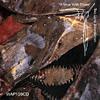 This did come with a record of Remixes – Receive Tactical Support – but more on that later. I like Two Lone Swordsmen. Maybe the two records don’t ooze out of the speakers quite as psychopathically as Squarepusher – maybe the (Tr/H)ipHop isn’t quite as Soul Rock’n’Roll comin’ like a Bomb Dog as Osymyso – but they are a fine pair of records none the less. You see, the thing is they are all great records and you should drop what ever you are doing – and yes that does include carrying large pans of boiling water – and take yourself to a place fitting to procure such recordings. Now, get the picture?
This did come with a record of Remixes – Receive Tactical Support – but more on that later. I like Two Lone Swordsmen. Maybe the two records don’t ooze out of the speakers quite as psychopathically as Squarepusher – maybe the (Tr/H)ipHop isn’t quite as Soul Rock’n’Roll comin’ like a Bomb Dog as Osymyso – but they are a fine pair of records none the less. You see, the thing is they are all great records and you should drop what ever you are doing – and yes that does include carrying large pans of boiling water – and take yourself to a place fitting to procure such recordings. Now, get the picture?
A Virus with Shoes is generally rather mellow and laid back, but it charts some strange tangents of mellowness. It’s never disturbing for all its weirdness. The track that does it for me is “Brother Foster Through The Phones”. This is great and cute, all in a bizarre way. It starts as if it intends to become obscenely trendy and hey Jazzzzz. This carries on for a while before halted in it’s track by a devilmunchkin voice saying: “Hello Mr Hitchcock, in 2 minutes you will be dead”. The Jazz continues before finally collapsing in on itself, and Two Lone Swordsmen go about their obscure TripHop shenanigans.
Receive Tactical Support is also something of a winner, although in a different way. I tried to decide which I preferred, but eventually I realised this was pointless. “Black Commandments” (remixed by Silicon Scally) is an Electro epic of Homeric proportions almost reaching the heights of “Autobahn”. “Big Clapper” (remixed by C-PIJ) is the other one I really like; it’s the kind of music to loose consciousness to – in the best possible way. Kenny Hawkes‘ mix of “Stay Down” doesn`t do a great deal for me. It’s OK, maybe it will grow on me, but for the moment I don`t have a great deal more to say about it. Finally, Two Lone Swordsmen deserve the 1999 song title of the year award – can you think of a better track name than “Cloned Christ On A Hover Donkey (Be Thankful)”?
-Norris Notepad-
